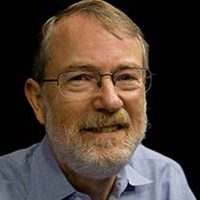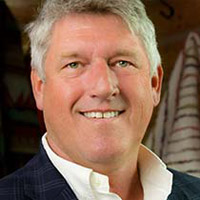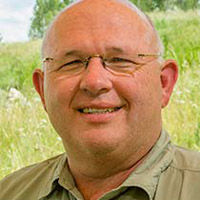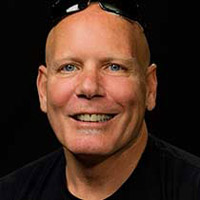Organizing Tax Records This Summer Can Help You Keep Your Cool
Organizing Tax Records This Summer Can Help You Keep Your Cool
Source: IRS.gov
If the sweltering dog days of summer aren’t incentive enough to get out of the sun for awhile, here is another reason to head indoors: organizing your tax records. Devoting some time mid-year to putting your tax-related documents in order may not only keep you out of the sun, but it should also make it easier for you to prepare your tax return when the filing season arrives.
Here are some things the IRS wants individuals and small business owners to know about record keeping.
What to keep – Individuals. In most cases, keep records that support items on your tax return for at least three years after that tax return has been filed. Examples include bills, credit card and other receipts, invoices, mileage logs, canceled, imaged or substitute checks or other proof of payment and any other records to support deductions or credits claimed. You should typically keep records relating to property at least three years after you’ve sold or otherwise disposed of the property. Examples include a home purchase or improvement, stocks and other investments, Individual Retirement Account transactions and rental property records.
What to keep – Small Business Owners. Typically, keep all your employment tax records for at least four years after the tax becomes due or is paid, whichever is later. Also, keep records documenting gross receipts, proof of purchases, expenses and assets. Examples include cash register tapes, bank deposit slips, receipt books, purchase and sales invoices, credit card charges and sales slips, Forms 1099-MISC, canceled checks, account statements, petty cash slips and real estate closing statements. Electronic records can include databases, saved files, e-mails, instant messages, faxes and voice messages.
How to keep them – Although the IRS generally does not require you to keep your records in any special manner, having a designated place for tax documents and receipts is a good idea. It will make preparing your return easier, and it may also remind you of relevant transactions. Good record keeping will also help you prepare a response if you receive an IRS notice or need to substantiate items on your return if you are selected for an audit.
For more information on record keeping for individuals, check out Chapter 1,“Filing Information,“ in IRS Publication 17, Your Federal Income Tax. Find small business record keeping information in IRS Publication 583, Starting a Business and Keeping Records. Both publications are available at IRS.gov or by calling 800-TAX-FORM (800-829-3676). Also available are new video and audio files explaining record keeping requirements in detail, located on the IRS video portal at www.irsvideos.gov.
If you have questions or need expert tax or family office advice that’s refreshingly objective (we never sell investments), please contact us or visit our Family office page or our website at www.GROCO.com. Unfortunately, we no longer give advice to other tax professionals gratis.
To receive our free newsletter, contact us here.
Subscribe our YouTube Channel for more updates.

Alan Olsen, is the Host of the American Dreams Show and the Managing Partner of GROCO.com. GROCO is a premier family office and tax advisory firm located in the San Francisco Bay area serving clients all over the world.
Alan L. Olsen, CPA, Wikipedia Bio

GROCO.com is a proud sponsor of The American Dreams Show.

The American Dreams show was the brainchild of Alan Olsen, CPA, MBA. It was originally created to fill a specific need; often inexperienced entrepreneurs lacked basic information about raising capital and how to successfully start a business. Alan sincerely wanted to respond to the many requests from aspiring entrepreneurs asking for the information and introductions they needed. But he had to find a way to help in which his venture capital clients and friends would not mind.
The American Dreams show became the solution, first as a radio show and now with YouTube videos as well. Always respectful of interview guest’s time, he’s able to give access to individuals information and inspiration previously inaccessible to the first-time entrepreneurs who need it most. They can listen to venture capitalists and successful business people explain first-hand, how they got to where they are, how to start a company, how to overcome challenges, how they see the future evolving, opportunities, work-life balance and so much more..
American Dreams discusses many topics from some of the world’s most successful individuals about their secrets to life’s success. Topics from guest have included:
Creating purpose in life / Building a foundation for their life / Solving problems / Finding fulfillment through philanthropy and service / Becoming self-reliant / Enhancing effective leadership / Balancing family and work…

MyPaths.com (Also sponsored by GROCO) provides free access to content and world-class entrepreneurs, influencers and thought leaders’ personal success stories. To help you find your path in life to true, sustainable success & happiness. It’s mission statement:
In an increasingly complex and difficult world, we hope to help you find your personal path in life and build a strong foundation by learning how others found success and happiness. True and sustainable success and happiness are different for each one of us but possible, often despite significant challenges. Our mission at MyPaths.com is to provide resources and firsthand accounts of how others found their paths in life, so you can do the same.
Learning to Live Abroad | Keith Van Sickle
About Keith Van Sickle Keith grew up in Alameda, California, the son of public school teachers. He got his first taste of overseas life while spending a college term in England and later backpacked around the world for six months. Grateful for the scholarships that helped him pay for college, in 1987 he started…
Becoming Part of the Solution | Troy Downing
About Troy Downing Troy is a strong supporter of smaller government, the 2nd Amendment, and economic prosperity for all through lower taxes. An avid outdoorsman and huntsman, Troy firmly believes that we need true political outsiders in Washington to stand up for Montana against the federal government whenever necessary. Troy started as a Research Scientist,…
Inspiring Others to Succeed | Ray Dillon
About Ray Dillon Ray Dillon began his career as a process engineer working for the Zellerbach Corporation in Bogalusa, Louisiana. As Ray began his career the mill he was working at was just starting to modernize- an enviorment which Ray as a young engineer thrived in. He quickly rose through the ranks and eventually…
RockTape: Go Stronger Longer | Greg van den Dries
About Greg van den Dries Greg van den Dries is the founder of RockTape, a company that produces kinesiology product to allow injured athletes to remain active. The company started in 2009 and has grown exponentially. Currently it has 13 international offices that service 60 different countries. RockTape is Greg’s 7th startup company. Prior to…




